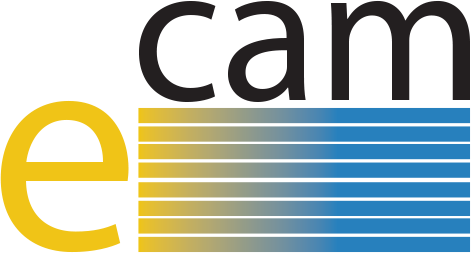Work Package 4
WP leader: Burkhard Dünweg, Max Planck Institute for Polymer Research – Mainz
Lead beneficiary: University of Barcelona
The inclusion of atomistic or electronic detail and the short time-steps required in most quantum and classical MD calculations limit the system size and the total time accessible with these methods. For phenomena of relevance to academia and industry that occur on longer time and distance scales (such as protein folding, polymer and surfactant structuring, lubrication and blood cell flow) it is useful to integrate out some of the underlying degrees of freedom and to develop coarse-grained models. These mid-scale or meso-scale models can be studied using suitable adapted simulation techniques from classical simulations and by developing new techniques that go beyond the particle-based description, for which E-CAM will develop and apply a number of new methods. Equally important and challenging is the requirement to work across more than one length or timescale at the same time, using multi-scale simulation techniques targeted at the production of new materials with tailored macroscopic properties (for example dislocations, grain boundaries, active sites). While considerable theoretical work exists in this domain, there is no generally accepted code in the community. One of the goals of WP 4 will thus be to produce the necessary software by combining software modules. It will also produce software to bridge different descriptions (quantum, classical, continuum) in a sequential coupling scheme in which input parameters are computed at the higher resolution and then used in the lower resolution model.
WP4 will provide a means for academic and industrial E-CAM users of addressing computational questions that involve meso and multi-scale modelling reliably and effectively by implementing a set of coordinated actions aimed at industrial discussion, software development, and training.
To facilitate industrial discussion, the meso and multi-scale team will participate in scoping workshops and complete two pilot projects with Michelin and Unilever. Further collaborations with industrial partners will be initiated in the second half of the project.
For software development and training, 5 extended software development workshops will be organised and the meso multi-scale part of the E-CAM library uploaded and documented.
The state-of-the-art will be reviewed via the organisation of 2 state-of-the-art workshops during the funding period.
